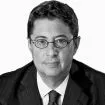In the US, attorneys' fees generally are not available to the winning party unless authorized by statute or the parties have agreed to permit a fee award. Copyright law is one area where fee shifting is permitted, and courts have discretion to award a "reasonable" fee to the winning party. How do courts decide? A recent Supreme Court decision clarified the factors courts may consider. Here's what you need to know:
Kirtsaeng v. John Wiley & Sons, Inc., No. 15-375 (2016)
In Kirtsaeng, an individual imported inexpensive English-language textbooks from Thailand and sold them in the US at a price below the publisher's (nearly identical) domestic version of the textbook. The publisher sued, and in 2013, the Supreme Court held, in a separate decision on the same case, that the domestic resale of the textbooks lawfully purchased abroad did not infringe the publisher's distribution rights.
The importer asked the lower courts to award attorneys' fees, but the courts refused, finding that the publisher's legal position in pursuing a claim for copyright infringement was not objectively unreasonable. The importer appealed to the Supreme Court, which held that in copyright cases the "objective reasonableness" of the losing party's legal position carries "substantial weight" in deciding whether to grant attorneys' fees to the winning party ---- but that factor alone is not dispositive: a party's litigation misconduct or "repeated" infringement or "overaggressive" enforcement of claims could also justify a fee award even if a party's legal argument was reasonable. We note that the Supreme Court did not decide whether to award fees in this particular case, but sent the case back to the district court for further consideration.
What this means
Kirtsaeng serves as a useful reminder that the winning party in a copyright case can seek to recover its attorneys' fees. The Supreme Court has previously clarified that fee awards are available regardless of whether the prevailing party is the plaintiff or defendant; generally, however, the copyright owner must have registered the work with the US Copyright Office prior to the infringement in order to be eligible to recover fees. The Court's emphasis on "reasonableness" in Kirtsaeng is a warning to parties to carefully consider the strength of their legal theories before filing ---- as unfounded or frivolous claims may lead to fee shifting. Finally, by clarifying that fee awards are available in cases of litigation misconduct or abusive serial litigation, Kirtsaeng may encourage district courts to use such awards to police their dockets for "copyright trolls" or to deter chronic infringers.
This alert provides general coverage of its subject area. We provide it with the understanding that Frankfurt Kurnit Klein & Selz is not engaged herein in rendering legal advice, and shall not be liable for any damages resulting from any error, inaccuracy, or omission. Our attorneys practice law only in jurisdictions in which they are properly authorized to do so. We do not seek to represent clients in other jurisdictions.

